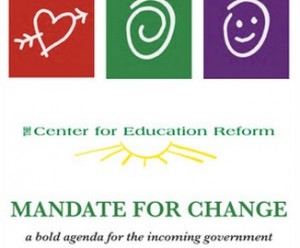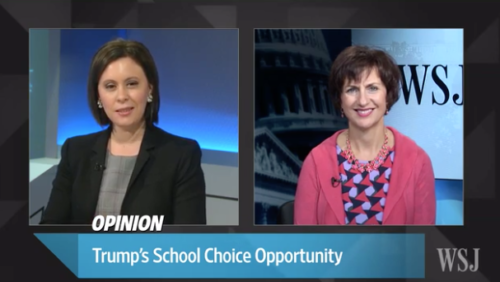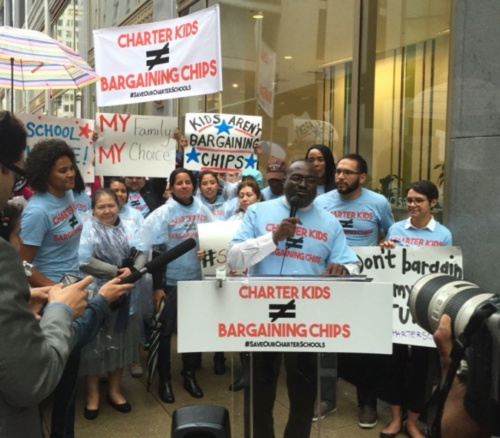
STATEMENT BY CER FOUNDER & CEO JEANNE ALLEN ON SELECTION OF BETSY DEVOS AS US SECRETARY OF EDUCATION
FOR IMMEDIATE RELEASE
November 28, 2016
WASHINGTON, DC — Jeanne Allen, Founder and CEO of the Center for Education Reform, issued the following statement regarding President-Elect Donald Trump’s selection last week of Betsy DeVos as his Secretary of Education:
“Educational choice and a passion for innovation have been the hallmark of Betsy DeVos’ many years at the forefront of the movement to transform elementary and secondary education in Michigan and the nation at large.
“Her selection is a bold statement by the President-elect that he intends to follow through on his campaign promise to make educational choice a centerpiece of his determination to ensure that the children of our nation – all of them – will achieve the American dream.
“The Center for Education Reform will enthusiastically support every effort by the new administration to expand innovation and real educational opportunity to benefit every child in America.
“Whether their futures are best served in traditional public schools, public charter schools, private schools, or a homeschool environment, our children deserve the very best education we can provide, and we will support Secretary DeVos in her efforts to ensure that innovation and opportunity are at the core of national policy under her leadership.”
About the Center for Education Reform
Founded in 1993, the Center for Education Reform aims to expand educational opportunities that lead to improved economic outcomes for all Americans — particularly our youth — ensuring that the conditions are ripe for innovation, freedom and flexibility throughout U.S. education.

















